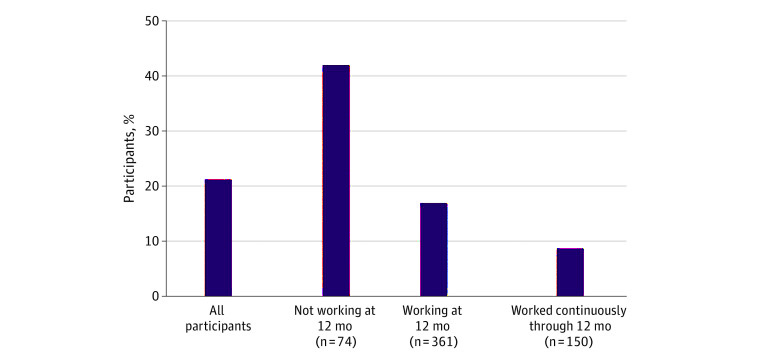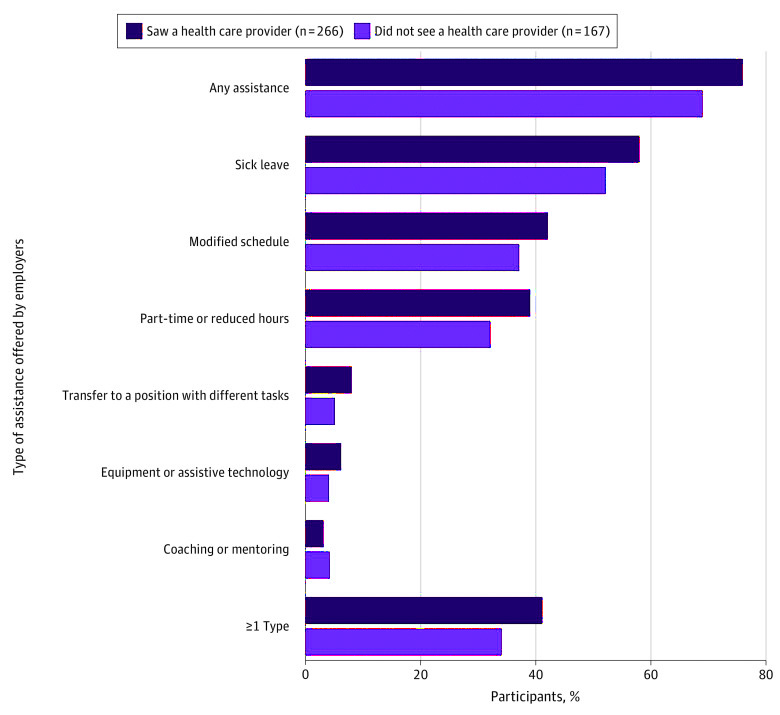Traumatic brain injuries (TBIs) are a significant cause of morbidity and mortality worldwide, and the road to recovery can be long and arduous. If you or someone close to you has suffered a TBI, you know from personal experience just how difficult life can be after a serious blow to the head. It can quite literally be life changing, and not in a good way. One of the most significant hurdles faced by individuals who have sustained a TBI is the process of returning to the work. Whether it be a high profile NFL quarterback, a construction worker, or a white collar business professional, reintegration into the workforce post-TBI can be a daunting task. And of course, there is the loss of income associated with missing too much work. In a cohort study of mild traumatic brain injuries and the economic impact, time away from work was associated with a decline income for many participants.

Aside from the personal struggles one may have, there is also concern from your employer. Are you going to be working like you normally would? How are you emotionally? How will your productivity be? There are many questions that need to be answered. However, with appropriate support and preparation, it is possible to successfully transition back to employment. It won’t be easy if it was a serious injury (although really, all brain injuries are serious). According to the same study mentioned above, 27% of the participants employers did not even offer any form of employment assistance in the first 3 months after injury. For the 73% of participants who were offered at least one form of employer assistance, this group was 10% more likely to report working 6 months after their injury.
The initial step in returning to work after a TBI is to gain an understanding of one’s cognitive, physical and behavioral limitations. TBIs can result in a wide range of symptoms, such as memory loss, fatigue, and difficulty with concentration, which can have a significant impact on an individual’s ability to perform their job. It is crucial for individuals to be honest with themselves and their employer regarding their abilities and limitations in order to set realistic goals and expectations for their return to work.

Having a conversation with your boss or HR department would be wise. Not only will this ensure everyone is on the same page when it comes to expectations, work schedule, and your rights as an employee, they may also offer you assistance, as shown in the image above. Additionally, you may want to consider talking about some options for returning to work, including:
Another crucial step is to work with a multidisciplinary rehabilitation team. This might include a neuropsychologist, occupational therapist, a vocational counselor, etc. As a team, they will help to identify where you need the most help, what your strengths and weaknesses are, and developing a plan to get back to work completely.
It’s easy to get extremely frustrated after a brain injury, especially when you’re not able to function 100% as you were before your injury. Having patience with yourself is an important part of the whole process of returning to work after a TBI. It is also important to acknowledge that setbacks are a normal part of the recovery process, and it is acceptable to take a break if necessary.
One of the primary concerns faced by individuals with TBI when returning to work is the fear of discrimination. Many individuals worry that their employer will view them as a liability and that they may be passed over for promotions or even lose their job. However, under the Americans with Disabilities Act (ADA), employers are required to make reasonable accommodations for employees with disabilities.
It is essential to note that returning to work after a TBI can be a challenging process, but with the appropriate support and preparation, it is possible to successfully transition back to employment. By understanding one’s limitations, working with a multidisciplinary rehabilitation team, being patient with oneself and utilizing reasonable accommodations, an individual can overcome the hurdles and achieve their goals.
How soon can I return to work after a brain injury?
Of course, every situation is different and highly depends on what is happening with the injured person and their recovery. The timing of when an individual can return to work after a brain injury depends on the severity of the injury, the type of injury and the recovery process. In some cases, an individual may be able to return to work right after the injury, while in other cases, it may take several months or even years before they are able to return to work. Returning to work too soon after a brain injury can make recovery worse, so you will want to make sure you are medically cleared to return (just like all NFL players who enter the concussion protocol).
Will my employer accommodate my needs when I return to work after a brain injury?
Under the Americans with Disabilities Act (ADA), employers are required to provide reasonable accommodations for employees with disabilities, which can include adjustments to the work environment, job tasks, and schedules. However, some employers may not even be aware of their legal obligations or may not be willing to make the necessary accommodations. This is especially true for small employers. Or they may know, but may not want to tell you. It’s important to know your rights so you are not taken advantage of by your employer. Hopefully you work for a good company where you don’t have to worry about this.
Can you make a full recovery after a brain injury?
Again, this depends on the severity of the injuries and the individual. In some cases, the brain can have a remarkable ability to heal itself or to adapt and compensate for damage, allowing that person to make a full recovery or near-full recovery. Sadly, in other cases, the damage may be so severe that they will not be able to make a full recovery, as the damage will be permanent and the individual may have long-term impairments.
We are all aware of the fact that there are many dangerous jobs in America. Probably the most obvious ones are professional athletes, such as football players, MMA fighters, boxers and soccer players. Aside from pro athletes, some of the other types of jobs and industries where a brain injury is more common include: